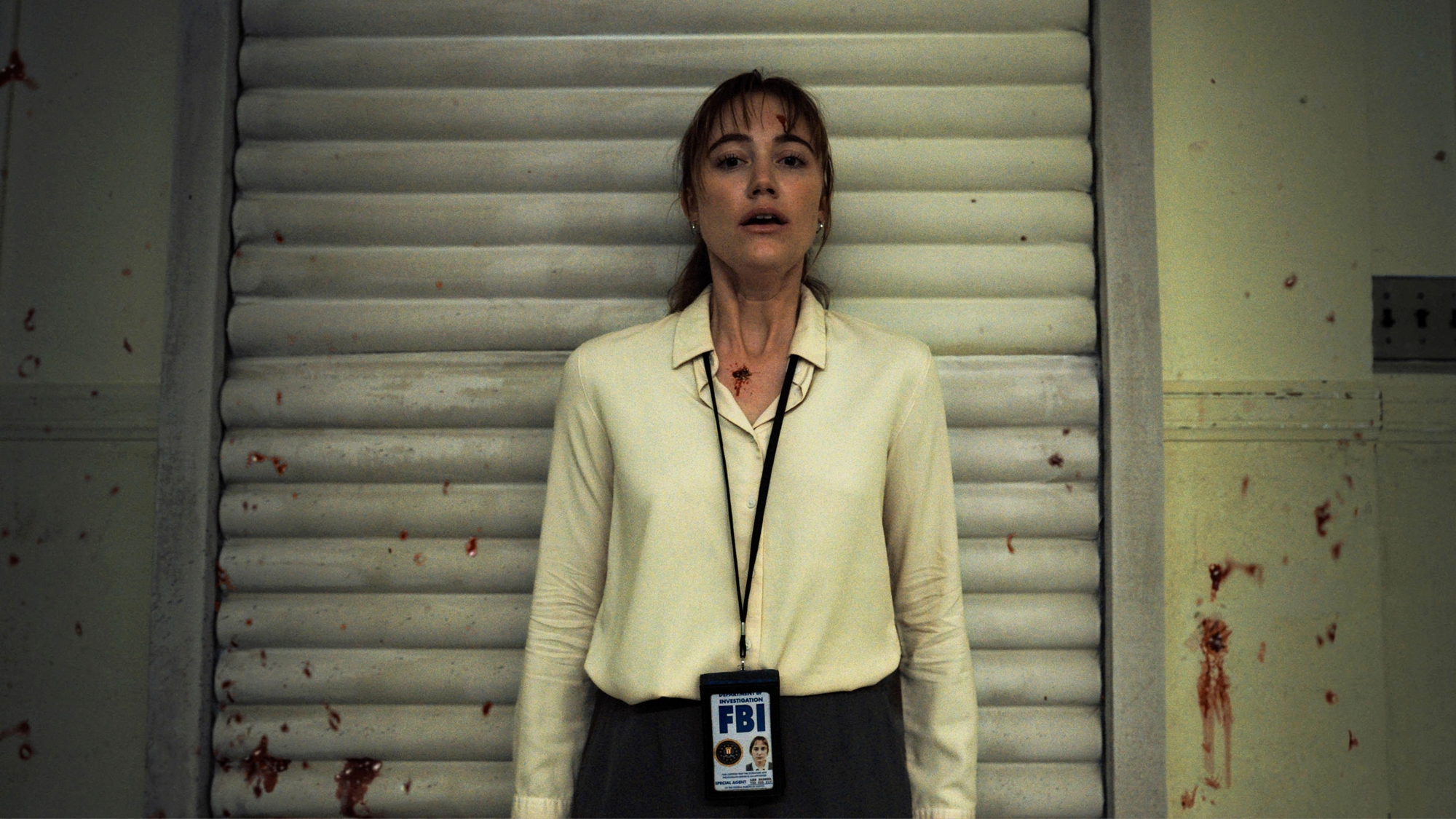Longlegs: 'nerve-jangling and devilishly bleak' horror film
Nicolas Cage gives perhaps the most 'terrifying' performance of his career as the titular serial killer

A free daily email with the biggest news stories of the day – and the best features from TheWeek.com
You are now subscribed
Your newsletter sign-up was successful
You could easily mistake "Longlegs" for "just another serial killer flick", said Tom Shone in The Sunday Times. But, in fact, it is something far rarer: "a horror film that gives you a bona fide case of the heeby-jeebies".
Set in Oregon in the 1990s, it stars Maika Monroe as FBI agent Lee Harker, whose uncanny, almost supernatural, talent for rooting out murderers lands her with a special assignment: to track down an elusive suspect dubbed Longlegs (Nicolas Cage). His MO is to persuade previously respectable men to murder their own wives and children, and then to kill themselves.
The idea that drives "Longlegs", an idea "shared by only the very best horror films", is a thoroughly terrifying one – "that true horror does not reside in something outside menacing us, but the thoughts we can't control bubbling up inside of us".
The Week
Escape your echo chamber. Get the facts behind the news, plus analysis from multiple perspectives.

Sign up for The Week's Free Newsletters
From our morning news briefing to a weekly Good News Newsletter, get the best of The Week delivered directly to your inbox.
From our morning news briefing to a weekly Good News Newsletter, get the best of The Week delivered directly to your inbox.
"Only about once every two or three years does a horror-thriller as good as Longlegs lope into view," said Tim Robey in The Daily Telegraph. Director Osgood Perkins fills every "sickly vista" with "an inescapable menace"; and "nested away" within the film is "perhaps the most terrifying performance of Cage's career".
In the first half, we only get "cropped glimpses" of him – but "brace yourself for his strangely motherly set of lips", his "hideous wig", his habit of "gradually screaming", and his penchant for "nonsense rhymes".
"Nerve-jangling and devilishly bleak, 'Longlegs' is easily the front-runner for the scariest movie of 2024," said Jen Yamato in The Washington Post. Cage "cranks the dial, sealing his 'Longlegs' as one of the great horror villains"; and "even the end credits are cleverly designed to ensure viewers linger in a state of visceral unease, letting the dread sink in".
A free daily email with the biggest news stories of the day – and the best features from TheWeek.com
-
 What to know before filing your own taxes for the first time
What to know before filing your own taxes for the first timethe explainer Tackle this financial milestone with confidence
-
 The biggest box office flops of the 21st century
The biggest box office flops of the 21st centuryin depth Unnecessary remakes and turgid, expensive CGI-fests highlight this list of these most notorious box-office losers
-
 What are the best investments for beginners?
What are the best investments for beginners?The Explainer Stocks and ETFs and bonds, oh my
-
 The biggest box office flops of the 21st century
The biggest box office flops of the 21st centuryin depth Unnecessary remakes and turgid, expensive CGI-fests highlight this list of these most notorious box-office losers
-
 A thrilling foodie city in northern Japan
A thrilling foodie city in northern JapanThe Week Recommends The food scene here is ‘unspoilt’ and ‘fun’
-
 Tourangelle-style pork with prunes recipe
Tourangelle-style pork with prunes recipeThe Week Recommends This traditional, rustic dish is a French classic
-
 Samurai: a ‘blockbuster’ display of Japan’s legendary warriors
Samurai: a ‘blockbuster’ display of Japan’s legendary warriorsThe Week Recommends British Museum show offers a ‘scintillating journey’ through ‘a world of gore, power and artistic beauty’
-
 BMW iX3: a ‘revolution’ for the German car brand
BMW iX3: a ‘revolution’ for the German car brandThe Week Recommends The electric SUV promises a ‘great balance between ride comfort and driving fun’
-
 Mail incoming: 9 well-made products to jazz up your letters and cards
Mail incoming: 9 well-made products to jazz up your letters and cardsThe Week Recommends Get the write stuff
-
 Arcadia: Tom Stoppard’s ‘masterpiece’ makes a ‘triumphant’ return
Arcadia: Tom Stoppard’s ‘masterpiece’ makes a ‘triumphant’ returnThe Week Recommends Carrie Cracknell’s revival at the Old Vic ‘grips like a thriller’
-
 My Father’s Shadow: a ‘magically nimble’ love letter to Lagos
My Father’s Shadow: a ‘magically nimble’ love letter to LagosThe Week Recommends Akinola Davies Jr’s touching and ‘tender’ tale of two brothers in 1990s Nigeria